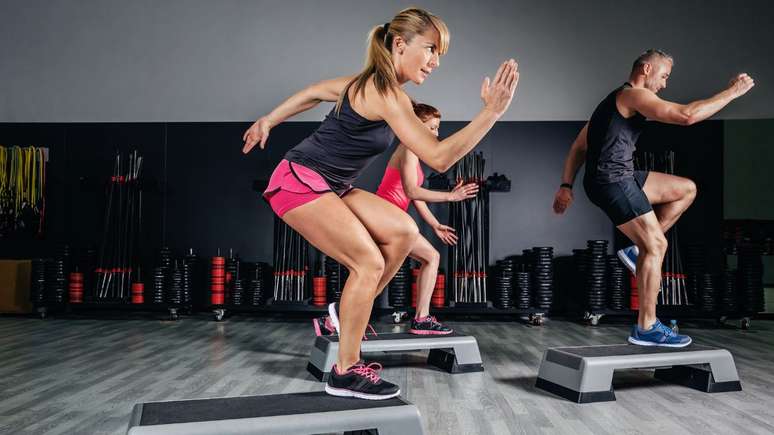Simple actions can make them last longer: you can use them, donate them, resell them or help the environment.
Shoes suffer from wear and tear. They get wet, dirty, and scuffed. Soles wear out. Shoelaces break. If you think the only thing you can do with the dirty sneakers you’ve worn to death is throw them away, you’re not alone.
In the United States, more than 300 million pairs of shoes end up in landfills every year, said Karen Pearson, president of the Sustainability Council at the Fashion Institute of Technology in New York. But Pearson and other experts say worn-out shoes may have more value than you think, and reusing them helps the environment.
“These are things that could have a second life,” he said. “We all need shoes,” Pearson added. “There are lots of ways to donate them, recycle them, or repair them, and depending on your convenience and needs, you can easily do one of those things today.”
What to do with used sneakers:
Donation
One way to extend the life of still-usable shoes is to donate them or give them away through clothing swaps, experts say. Depending on the condition of your shoes, you can also try selling them at secondhand shops or online resale platforms.
Goodwill, which receives billions of pounds in donations each year, accepts shoes in any condition, including unique shoes, said Catherine Meloy, president and CEO of Goodwill of Greater Washington.
“You’d be surprised at the resale and reuse value of shoes,” Meloy said. What might seem like a worn-out shoe to you could be considered sellable, whether at Goodwill stores or in other countries that need shoes.
“We say we will take your product because we will know what to do with it, whether it needs to be shipped to the store or whether we can replace it in another way,” he said.
Return programs
A growing number of companies have also launched programs that allow customers to return old shoes instead of throwing them away. The returned shoes can be donated or recycled.
Keep in mind that some programs may be brand-specific, meaning a company will only accept their products. Meanwhile, there are others that will accept any shoe, regardless of brand, as long as they are the same type.
Nike’s program, for example, accepts all brands, but will only accept sneakers. Known as Nike Grind, your old sneakers can end up in a variety of new products beyond new shoes, including gym equipment or materials used for tracks, turf fields, or playgrounds. But while the technology for dismantling and replacing shoes is improving, some experts note that recycling old shoes still presents some challenges.
For one thing, shoes can be difficult to disassemble and work with because they often contain a mix of materials, such as fabric, rubber, leather and metal, that are often held together by adhesives and stitching, said Katrina Caspelich, marketing director at Remake, a nonprofit that advocates for sustainable and ethical fashion.
Shoes collected for recycling do not always end up being recycled. An investigation by Reuters published last year found that many shoes donated to a program led by the Singapore government and U.S. petrochemical giant Dow ended up being exported.
Maintenance and repair
Another way to keep your shoes looking their best is to take better care of them. Think about the potential wear and tear your shoes will get, said Madelyn Morgan, circular economy program manager for the city of Austin. If it’s raining or you’ll be walking through mud, don’t wear shoes that aren’t designed to get wet or dirty. You should also consider rotating your shoes and not wearing the same pair every day.
“Treating your possessions as valuable” is key, Morgan said. Cleaning and repairing shoes can help extend their life. The city of Austin, for example, has offered residents the opportunity to attend clinics where they can learn how to repair items, including shoes, Morgan said. Some shoe brands also offer repair services.
It’s also important to consider brands and how their shoes are made, she said. Before you buy shoes, ask yourself: Does the manufacturer have a reputation for durable products? Do they offer repair or recall programs? What types of materials are they using?
While extending the life of your shoes may take a little effort, doing what you can to keep them out of the trash is important, Pearson said. “It’s easy for an individual to feel like they’re not making a difference with their pair of sneakers that they’re going to throw in the trash on Monday,” Pearson said. But “the more people that do it, the bigger the impact.”
This content has been translated with the help of artificial intelligence tools and reviewed by our editorial team. Find out more in our Artificial Intelligence Policy.
Source: Terra
Ben Stock is a lifestyle journalist and author at Gossipify. He writes about topics such as health, wellness, travel, food and home decor. He provides practical advice and inspiration to improve well-being, keeps readers up to date with latest lifestyle news and trends, known for his engaging writing style, in-depth analysis and unique perspectives.









